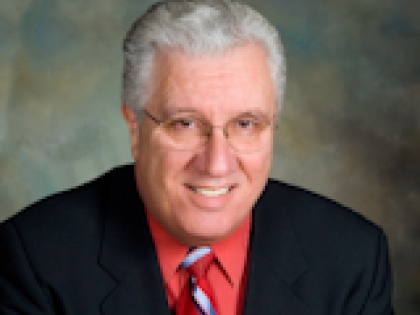
Senator Marcellino Safeguarding Long Island’s Environment
Senator Carl L. Marcellino, Chairman of the Senate Environmental Conservation Committee today held a hearing to comprehensively address the issue of Sewage Wastewater Management and Planning on Long Island at the Cold Spring Harbor Library and Environmental Center.
"Sewers are the hidden impediment to economic revitalization. Sewers are crucial to protect our environment, create workforce housing and economic development," said Senator Marcellino.
The hearing today focused on wastewater management solutions that protects the aquifer and ocean resources while putting the Region on a clear path to sustainable development.
Long Island problems are unique. " On Long Island we drink the water beneath our feet so we must act in a responsible way to protect our valuable aquifers," Marcellino said. With an increasing population, the shallow glacial aquifer is no longer usable because of sewage and industrial toxins. Water is now pumped from deep public-supply wells that tap the lower confined aquifers. These deeper, confined aquifers have not yet been invaded by the polluted groundwater and we must make sure that they are not.
In addition the Long Island Sound is stressed by pathogens and viruses that have entered the Sound partly due to older sewer systems that have combined stormwater and sanitary systems that overflow during rainfalls.
"If we do not work to improve the infrastructure and control the discharge of pollutants, beach and shellfish area closings will increase, and the populations of fish and wildlife will decline," said Senator Marcellino. "To continue to meet the needs of the region it is imperative for Long Island to have a plan in place that includes waste water management."
This year to help with the growing need Senator Marcellino secured $1,000,000 in the Environmental Protection Fund specifically for Long Island Sewer Projects.
This complex issue will continue to need careful study. In the 2007-2008 New York State Budget there is $300,000 for the Department of Environmental Conservation (DEC) to do a statewide assessment of wastewater infrastructure improvement needs. The analysis will focus on upgrading existing wastewater treatment facilities and an assessment of the costs of meeting such needs. The report due to the Governor and Legislature March 1, 2008 will also recommend funding methods and potential legislative and regulatory proposals.
Testimony was offered by:
Suffolk County Executive Steve Levy
Jim Morgo, Commissioner, Suffolk County Economic Development & Workforce Housing
Tom Mahr, Nassau County Executive Office
Raymond A. Ribeiro, Commissioner, Nassau County Department of Public Works
Matthew Millea, Director of Environmental Facilities
William Spitz
Allan Fuches
Department of Environmental Conservation
Michael Deering, Vice President, Government Affairs.The Long Island Association
John Cameron, League of Consercation Voters
Sarah Lansdale, Executive DirectorSustainable Long Island
Michael White, Executive Director, Long Island Regional Planning Board
Bob Wieboldt, Executive Vice President, Long Island Builders Institute
Kevin McDonald, Nature Conservancy
Addrienne Esposito, Executive Director, Citizens Campaign For the Environment
Kevin McAllister, Executive Director, Peconic Baykeeper
NEWSDAY
Sewage on LI: Better coordination needed
By: JENNIFER SMITH
April 5, 2007, 3:22 PM EDT
Sewage "isn't all that sexy," state Sen. Carl Marcellino (R-Syosset) admitted at a Senate hearing Thursday on sanitation and regional planning in Cold Spring Harbor.
But how -- and where -- Long Islanders dispose of human waste has real consequences for the region's economic and environmental health, according to officials and representatives of business, environmental and planning groups who spoke at the hearing.
Most agreed on the need for better coordination between local governments and agencies on upgrades to existing sewage treatment plants and planning for new ones. A number praised a recent Newsday two-part series on sewage, which Marcellino entered into the hearing's public record.
At times the topic made for strange bedfellows. Peconic Baykeeper Kevin McAllister, an environmental advocate who has fought development along Mastic's Forge River, agreed with Bob Weiboldt of the Long Island Builders Institute on the need for better regulation of private septic tanks and cesspools.
But not everyone agreed on priorities.
Calling sewers an "antidote to sprawl," Suffolk County Executive Steve Levy said the county would focus on areas where expanded sewer capacity could lure businesses, such as the 110 corridor or the Hauppauge Industrial Park. But some called for sewering already-developed areas such as Wyandanch to foster revitalization; others said the focus should be on areas such as Mastic, where the density of private cesspools has polluted nearby waters with nitrogen.
Marcellino pressed Thomas Maher, Nassau's director of environmental coordination, on pollution problems at the Birches sewage treatment plant in Bayville that remained unresolved despite 30 years of discussion. Maher said that a new sewage treatment plant for the area was awaiting state approval and that Nassau was about to embark on a new sewer and stormwater master plan.
Adrienne Esposito, executive director of Citizens Campaign for the Environment, said that Nassau had plenty of existing problems: overburdened cesspools in Point Lookout, and 64 million gallons of wastewater entering the South Shores western bays each day from sewage treatment plants. Those plants -- such as the state-run plant serving Jones Beach that Esposito said had incurred 32 clean water violations since 2004 -- showed that sewers are not by themselves a panacea for environmental degradation, she said. "We need to keep health of the bays and estuaries in mind."
One item was not in dispute: the need for more money to maintain aging plants and build new ones where needed.
Levy and others pressed for more state and federal funding. State officials said that the federal Environmental Protection Agency had failed to request $200 million authorized by the Long Island Sound Restoration Act that local governments could use for sewage treatment plant upgrades.
And Marcellino said that Long Island needed to agree on a plan for the region before he asked the state legislature for funding, "so that they're convinced we're not just wasting their money. We are lagging behind and there's no excuse for it," the Senator said. "We need a plan."
Copyright 2007 Newsday Inc.
